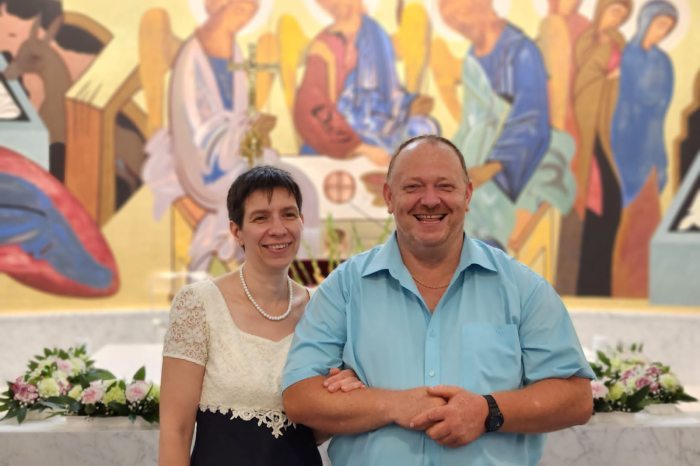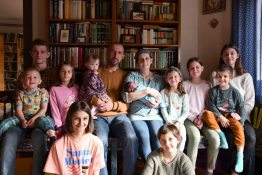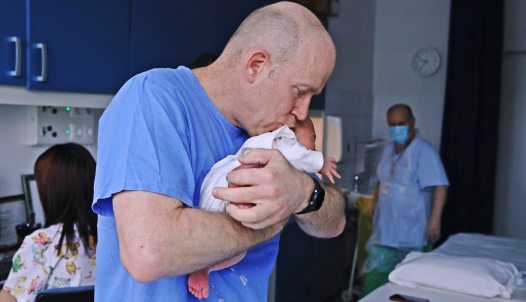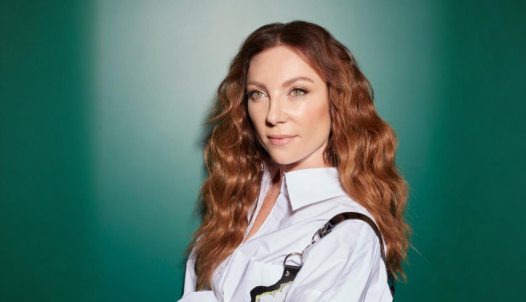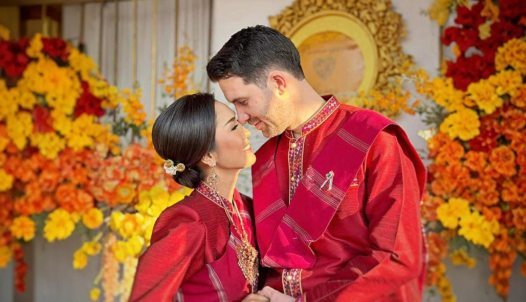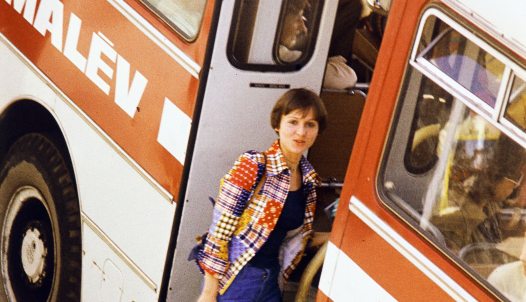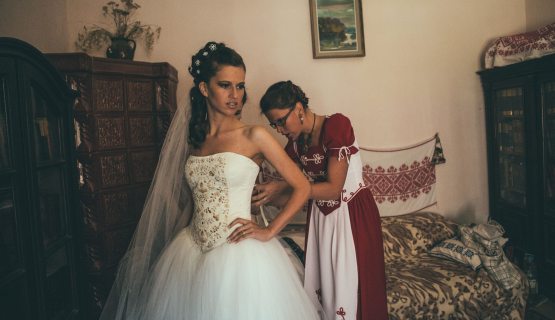“Now, Andrea, you won’t have any more children, will you?" - Risk, Adventure and Challenge with 11 kids
With ten siblings, you have to fight for attention as well as a good seat in the minibus. But you're never bored, and there's never a chance of you becoming lonely. Of course, you can be sad or happy, quiet or edgy, but you're guaranteed to learn acceptance, resilience, and adaptability, which is no disadvantage. Moreover, whether it's attention or gifts, you might feel that you don’t get much, but in reality, you do, and in multiplied measure.
And we haven't even talked about the parents yet.
We visited the Fenyvesi family of 11 children in their home in Felsőtárkány.
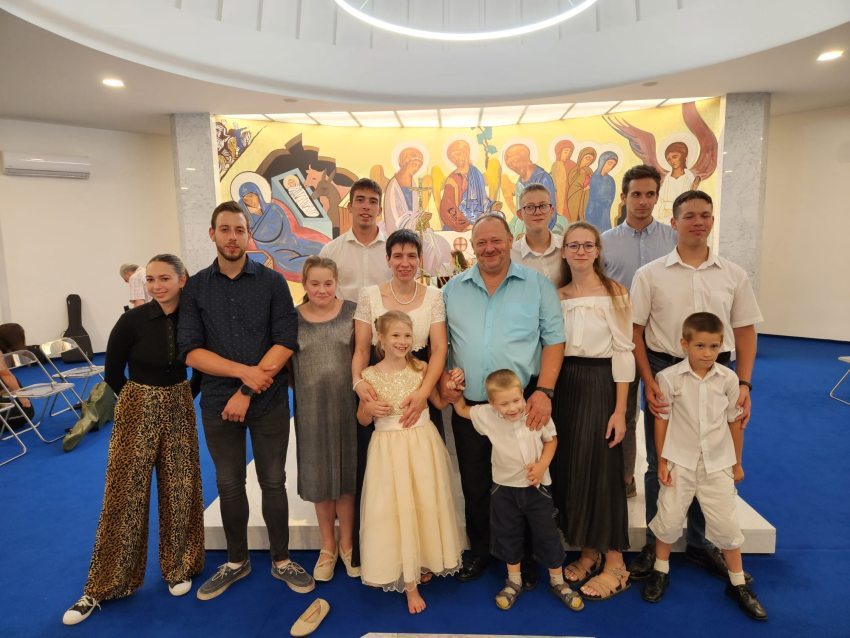
Where frozen meals and leftover pastries helped to get out of the slump
The row of houses blend into the quiet idyll of the Bükk mountains, but the early evening breeze brings a cheerful chatter from one of them. A teenage boy is emptying a bucket full of dirty water as the final stage of a car wash. A girl, a little younger, looking after the little ones in the garden, lets us in through the gate. As I make friends with the teddy-bear-shaped dog, she cries out enthusiastically, "'The babies are out next door!" - And she bends over the fence. But there is no shortage of children in their place, either, as István Fenyvesi and Andrea Fenyvesiné Pákozdi have a whole football team of children of their own.
The oldest is 23 years old and the baby of the family is four.
In birth order, they are Máté, Domonkos, Gellért, Réka, Teréz, Gergely, Fülöp, Rita, Bernadett, Dániel, and Benedek. The older ones are away from home, earning their own bread and pocket money. Máté is working full-time in Budapest, Domonkos is studying at the university, in a dual training scheme. Gellért is saving for college in Gödöllő after graduation, while playing folk music in an amateur band as a hobby. Réka is spending a few weeks at Lake Balaton, not on a holiday but babysitting. According to István, it's a kind of necessity, as they can't afford everything. "I'm constantly worried about whether it will be enough, whether we can pay it, what needs to be delayed. The kids are growing and we need more and more, but we've left it up to God before and so far we've always managed to make ends meet. When I say no to something because there is no money for it, Andi starts praying and it works out. Once when the nearby sanatorium was being renovated, they filled our fridge with frozen food. When our debts piled up and our car broke down, we inherited." Gergő, 13, also remembers when they lived in Gyál and got leftovers from the bakery on weekends. And Andi remembers the old Skoda car her dad's friend had given them, so she could carry her then four-year-old Máté to kindergarten.
Where the gynaecologist acknowledged another pregnancy with obscene words
The Fenyvesi family seems to like taking risks. Not out of recklessness, just because of their trust in God. They belong to a Catholic community with whom they are walking the neocatechumenal way. That is why they have received all their children as a gift from God. "We saw before us an example of how to pass on life as God's co-workers. We know several couples who, after hearing the call, have taken on six children in addition to one or two. And if someone wants to have a child, but does not have one, they must accept it with trust," says the mother of the large family who has prayed through all her pregnancies. Máté and Gellért were born at 32 weeks, the latter with pneumonia. After that, the doctor asked, "Andrea, you're not having any more kids, are you?"
It was only six months later when the next baby answered the question, which the gynaecologist acknowledged with obscene words.
During a miscarriage, Andi's uterus was punctured. "I had to learn my limits because every pregnancy had its problems. Including my five miscarriages, we have 16 children."
Six years ago, before the arrival of the tenth new arrival, the Fenyvesi family made a bold decision: they gave up their crowded but familiar home in Gyál, István's leading position in a car repair shop, and moved to a picturesque village near Eger, Felsőtárkány. Many people thought the idea was crazy, but they called it a mission. The Archbishop of Eger invited the neocatechumenal community to come and evangelize. It is not compulsory to answer this invitation, but the Fenyvesi family, together with the older children, said yes. The decision brought new challenges: finding a house, a kindergarten, schools, and a job in the area. István calls it a miracle how they found their current home at the last minute, before giving birth and starting school. "Every time a baby arrived, I was afraid that my life would change again and I would have to give up something. But we were never left without a solution, so I was finally able to let go of my worry."
Where there is room for eleven, sometimes there is room for thirty
While we chat around the dining table, sometimes the younger ones jump up and run out into the garden to play. When they get hungry, Rita makes them some sandwiches. The little ones are also bustling about on weekdays. "There's no barrier in front of them. If they want to, they go into the big ones' rooms or shout if they won't let them in. " István says with a laugh. "It's obviously annoying if they're too loud, but after a while, you can turn off the stimulus. If I'm working on the laptop and they're talking to me, after a while I feel guilty because they are more important and they take advantage of that."
"Their personalities are different, of course. Some don't need as much attention or have given up. The other goes on and on, asking questions, sitting on laps, crawling on necks until they finally get the attention."
Gergő also reveals other handy tips, such as how to have a great conversation while setting the table or doing other chores. "When they show up and start fussing around me, I know they have something to say," Andi smiles in agreement.
In a family this size, it's hard to notice when the total number of people increases. "At first it's unusual to have one more person, but everyone fits into our family. It's just people who look at us strangely," says Tessza, who is about to start high school. There is a war for good seats in the minibus and cliques have been formed, but when they leave home they still move together. Gergő would really miss having no one to talk to when he's bored.
The Fenyvesi family is flexible about travel; those who can't fit in the nine-passenger car take the bus. They are also good at hospitality. Andi and István recently celebrated their 25th wedding anniversary. Dozens of guests came to the event, and 30 of them stayed overnight at the house in Felsőtárkány. The children ganged up and preferred to sleep on the floor, next to each other, rather than in their own place. They set up folding tables in the living room, cook outside in fine weather, and no one was left hungry.
Where the value of the gift does not matter
There is a kindergarten and primary school in Felsőtárkány, and István works locally. He drops off the little ones in the mornings, and Andi picks them up in the afternoons with a bit of shopping. They are also blessed to be able to go to folk dance, karate, drama, and music classes at the local Village Hall. The high school students study in Eger and are self-sufficient.
For more than two decades, Andi focused only on family, but when her youngest, Benedek, turned three, finances forced her to work. "I was temporarily employed as a nurse in the hospital, but it was difficult to get back into the job, the probation period was spent learning new things. When it ended, I soon got another offer. In hindsight, I understood that the initial two months were a stepping stone that God had prepared."
"I am now a full-time district nurse in three villages. It's a joy to meet newborn babies and pass on my experience to parents."
When Andi gets home from work, the first thing she does is check the tasks. After all, no one should be exempt from housework. Two by two, they are assigned to tidy up the rooms, and there's also a chart on the wall to show who's loading the dishwasher, preparing dinner, or setting the table. István is the chef, it's his hobby. On weekends, there are usually one or two soups and two or three main courses, but weekday dinners are simpler. It's a big help that they get a lot of vegetables from Grandma. The neighbour's also very helpful, willing to look after the children, bake cakes and sew for them.
Although finances are tight, there are personal as well as shared gifts under the Christmas tree. "We mainly buy necessities, but if someone wants something more serious, like a bicycle, the family pulls together," says István, who received a pencil with a homemade ornament from Betti for his last birthday, and Rita got candy and non-alcoholic beer from her pocket money. Because what counts here is not the value of the gift, but the thoughtful love.
Sponsored content.
